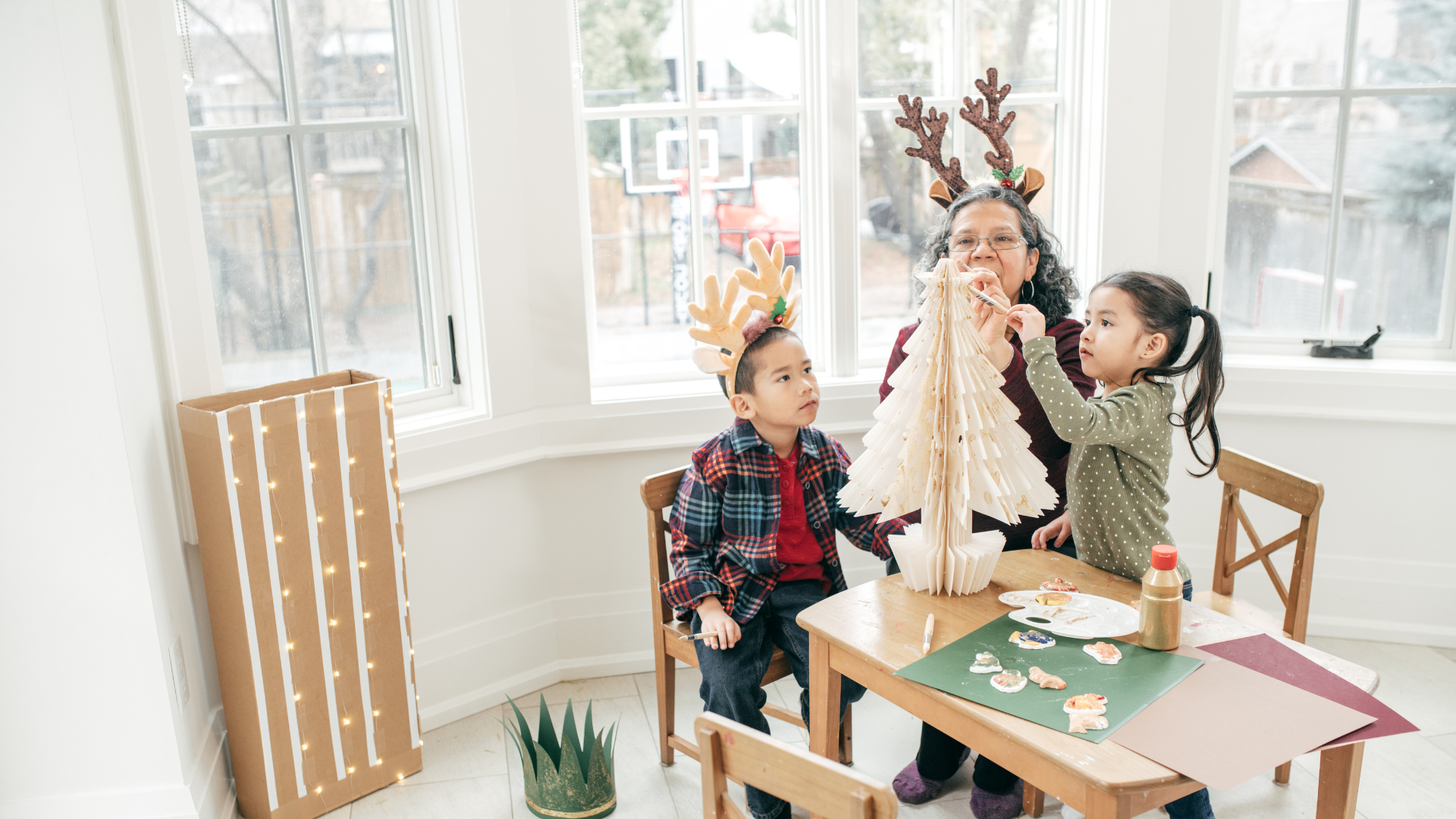
12 Tips to Support Adopted Children Through the Festive Season
Christmas can be both magical and challenging, especially for children in care. Here are our top tips to help children navigate the festive season.
1. Manage Expectations
A child in care may have never had their own Christmas stocking or a tree or gifts. They may never have had a Christmas like your own and it’s important for them to understand what is going to happen and what might change.
2. Start Conversations with Stories and Games
Books, games, and films can help you start difficult conversations with children about their expectations and emotions around Christmas.
3. Involve Children in Festive Activities
Go outside and take photos, organise a Christmas themed treasure hunt, have a go at Christmas origami, draw or paint Christmas cards together. Use the festive season to reassure children that their home and their family is secure.
4. Involve Children in Food Planning
Food and alcohol can be sources of stress for some children and young people. You can help to keep stress about food to a minimum by involving children and young people in meal decisions and planning. Alcohol can be a trigger for adults to act different, become louder and unpredictable.
5. Talk About Cultural and Family Traditions
Knowing what to expect works both ways. It’s always a good idea to ask children and young people about their birth family’s Christmas traditions. Where appropriate, try to incorporate some of these traditions into your own celebrations.
6. Be Predictable
A lot of our children and young people can perceive unpredictability and excitement as threats to their own safety and wellbeing. For some children, the change in routine around Christmas induces stress and anxiety, so do your best to keep their normal eating and sleeping patterns.
7. Be Mindful
Additional lights and noise of the festive season could be overwhelming for some children. Get them involved in decorating and build in breaks over Christmas for decompression time. Make sure they have a safe space to go to if they do feel overwhelmed where they can watch a movie, read a book, or play with their toys.
8. Reflect and Look Forward
Christmas can bring back bad memories; you can use this time to discuss as a family all the things you are grateful for and talk about family goals you’d like to achieve by next Christmas.
9. Have a Chat with Your Family and Friends
Before getting together, and make sure that they know what they can do to support the children in your care. You can help to reduce their anxiety by keeping your visitors to a minimum and by ensuring that children know when your visitors will be arriving. For some young children, it might be helpful to make a visual plan of the Christmas period, so they know what to expect, especially if this is their first Christmas with you.
10. Be Kind to Yourself
Try to find some time to yourself and don’t sweat the small stuff. Be easy on yourself and try to find some time to relax. If you’re going to be working hard, helping to keep children and young people happy over the Christmas period, making sure that you don’t get overwhelmed is important too.
11. Father Christmas
Some children might be worried about a strange man visiting their home at night, even if it is Father Christmas. Talking about what will happen and giving children some control over the situation, such as choosing where their stocking is left overnight, can help to ease their stress.
12. Naughty and Nice List
For some children, being told you are ‘bad’ or ‘naughty’ will evoke fear and panic. Take away this fear or worry by reassuring them Santa will deliver presents.
